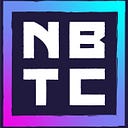DAO ? What do you mean by Decentralized Autonomous Organization ?
A Decentralized Autonomous Organization (DAO) is a digital organization or community that is run through code, rather than by a central authority or group of individuals. DAOs are built on blockchain technology, which allows them to be decentralized, meaning that no single entity controls them. Instead, they are governed by their members through the use of smart contracts, which are self-executing contracts with the terms of the agreement written into lines of code.
DAOs are designed to be autonomous, meaning that they can operate independently of any human intervention. They use a token-based governance system, where members hold and use tokens to vote on proposals and make decisions for the organization.
DAOs can be used for a variety of purposes, such as managing digital assets, creating decentralized applications, or organizing communities. Some examples of DAOs include decentralized finance (DeFi) platforms, decentralized prediction markets, and decentralized social networks.
DAOs have the potential to disrupt traditional organizational structures and decision-making processes, by providing a transparent, decentralized, and autonomous way of organizing and coordinating groups of people. However, they also raise a number of legal, regulatory and governance questions that still need to be addressed.
The evolution of DAOs
The concept of a Decentralized Autonomous Organization (DAO) has been around since the early days of blockchain technology. The first known prototype of a DAO was “The DAO”, which was created in 2016 on the Ethereum blockchain. The DAO was a decentralized venture capital fund that allowed its members to vote on proposals and make decisions for the organization using their Ether (ETH) tokens. Unfortunately, a vulnerability in its smart contract code was exploited, leading to the loss of $50 million worth of ETH, which resulted in the hard-fork of Ethereum blockchain, creating Ethereum Classic and Ethereum.
After the collapse of “The DAO”, many projects have been developed to improve the concept of DAO, such as:
- Aragon, a platform for creating decentralized organizations and managing digital assets
- MolochDAO, a decentralized autonomous organization focused on funding Ethereum infrastructure projects
- GnosisDAO, which is focused on prediction markets and decentralized prediction market protocols.
In 2018, the term DAO has seen a renewed interest with the rise of decentralized finance (DeFi) and the development of new projects such as MakerDAO, Compound and Uniswap. These projects have been designed to provide decentralized lending and borrowing platforms, which allows users to lend and borrow cryptocurrency without the need for a centralized intermediary.
The development of DAOs has continued to evolve with the introduction of non-fungible tokens (NFTs) and the emergence of decentralized autonomous communities (DACs) that use NFTs to represent ownership and control of digital assets.
In recent years, the use of DAOs has expanded beyond the financial sector, and they are now being used in various other industries such as in governance, social impact, and digital art and collectibles.
Current use cases and examples of DAOs
Decentralized Investment Funds:
DAOs are being used to create decentralized investment funds, such as TokenDAO and Melonport, that allow users to pool their resources together to invest in a variety of assets, including cryptocurrencies and traditional assets.
Supply Chain Management:
DAOs are being used to create decentralized platforms for supply chain management, such as Ambrosus and VeChain. These platforms use blockchain technology to provide transparency and traceability in supply chains, and allow stakeholders to vote on proposals and make decisions for the organization using their tokens.
Community Building:
DAOs are being used to create decentralized platforms for community building, such as DAOhaus and DAOincubator. These platforms allow users to create and join DAOs focused on specific interests, goals, or projects.
Gaming and NFTs:
DAOs are being used to create decentralized gaming platforms, such as Axie Infinity and Sorare, that use non-fungible tokens (NFTs) to represent ownership and control of digital assets. These platforms allow users to vote on proposals and make decisions for the organization using their tokens.
Autonomous vehicles:
DAOs are being used to create decentralized platforms for Autonomous vehicles, such as Ocean and Avis. They allow users to vote on proposals and make decisions for the organization using their tokens, such as deciding which routes the vehicles should take, how they should be maintained, and how they should be operated.
Potential implications and impact of DAOs on society and the economy
AOs have the potential to change the way organizations are run and decision making is done, by providing a transparent, decentralized, and autonomous way of organizing and coordinating groups of people. They could lead to a more democratic and transparent decision-making process and reduce the concentration of power in centralized institutions. However, DAOs also raise a number of legal, regulatory, and governance questions that still need to be addressed. Additionally, the impact of DAOs on society and the economy is likely to be complex and multifaceted, as they could disrupt traditional organizational structures and decision-making processes, but also automate certain tasks and decision-making processes which could lead to job displacement. Furthermore, DAOs could also increase financial inclusion, by providing access to decentralized lending and borrowing platforms and decentralized prediction markets to people who may not have access to traditional financial services. But they are also vulnerable to hacking, fraud, and other security risks, therefore it is crucial for DAOs to implement robust security measures to protect their members’ assets and data.
